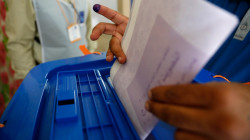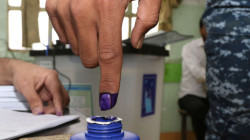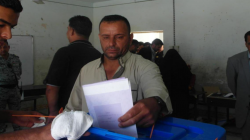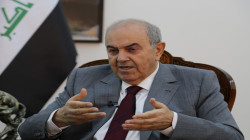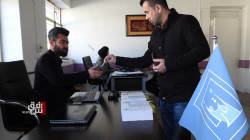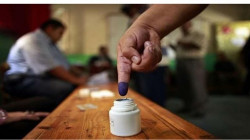Al-Halboosi fighting on two fronts: Presidency of the Parliament and Leadership of the Sunnis
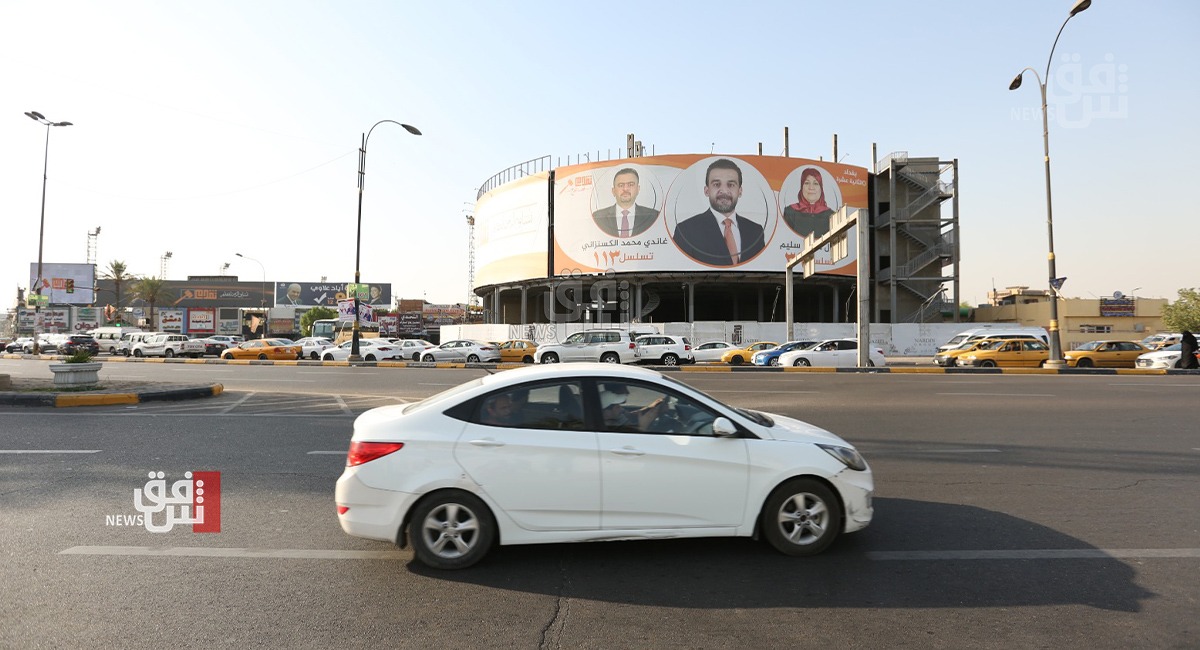
Shafaq News / Iraqi Parliament Speaker Mohammed Al-Halboosi stands today as the most popular figure in many governorates, particularly in Nineveh, Saladin, Al-Anbar, and some areas of Diyala, Kirkuk, and Baghdad, hoping to win the presidency of parliament for a second term, reinforced by his involvement in the origins of the political game in Baghdad, and the exchange of political support with key forces in Iraqi political life.
Al-Halbousi, born in 1981, is the youngest speaker of parliament in Iraq's modern history. He entered parliament in 2014, became a member of the Human Rights Commission, then a member of the Finance Committee, which held many strands of the government's great financial activity, before serving as governor of Al-Anbar, then again winning a parliamentary seat in the 2018 elections, and running for speaker of the Council of Representatives, beating his multiple rivals with broader political experience, including former Defense Minister Khaled al-Obaidi and former parliament speaker Osama al-Nujaifi.
Indeed, the vote was not decided for Al-Halboosi until more than a session of parliament due to the intense competition between the parties to own the largest share of deputies through the alliances that followed the results. However, that does not change the fact that Al-Halboosi managed to get 169 votes, after attracting support from al-Binaa Alliance formed by the Al-Hashd Al-Shaabi (Popular Mobilization forces-P.M.F.) led by Hadi al-Amiri, which unfolded later into al-Fatah Alliance.
This confidence, which Al-Halboosi has gained, reflects his ability to understand and compromise, a condition of parliamentary work, particularly the presidency of the Council, which, according to observers, is undoubtedly a skill reinforced by his four years as President.
However, this time, a "bone-breaking" effort is required from him to win the battle against his rivals, whom he cannot underestimate, for they can contest him as speaker of parliament for the 2021-2025 session, and also seek to monopolize the "Sunni street."
Al-Halbousi, through the Takaddum Alliance, is intensifying his efforts to prepare his supporters for active participation in the October 10, 2021 elections, relying on his tribal bases and residents of areas that have witnessed severe violence over the past years, particularly in the battles to liberate cities and areas of ISIS control.
It is estimated that the Takaddum Alliance is focusing on its strongholds in Saladin, Nineveh, Al-Anbar, parts of Diyala and Kirkuk, as well as the capital Baghdad, while also focusing on following up on what can be described as its biggest rival, the al-Azm Alliance led by Khamis al-Khanjar, whose circles suggest that he has influence in Nineveh, Kirkuk, and Saladin.
Therefore, observers say that the battle for "Sunni leadership" will not be easy, despite al-Halboosi's good balance.
"Al-Halboosi will win the majority of the votes, particularly in Al-Anbar governorate, specifically in Ramadi, al-Fallujah, and Saqlawiya districts, where he is very popular because of his interest in those areas, the service projects he supervised there, as well as his constant keenness to create suitable job opportunities for the youth of the mentioned areas," a source close to the leader of the Takadum Alliance told Shafaq News agency.
The source said that several factors had contributed to establishing a popular weight for al-Halaboosi, which would be witnessed through the ballot box, adding that he might have the first sequence on the list of winners from the Takadum Alliance's list.
However, the source did not rule out promoting "defaming campaigns" against Al-Halboosi on the grounds of employing public money and political influence in his propaganda campaign or pressuring voters by threatening to exclude or transfer employees or contractors within state departments if they did not vote in his favor.
On the other hand, the source seemed reassured that al-Halboosi has the confidence of the Sunni community as he has contributed prominently to the reconstruction of their areas, as well as activating the labor market and investments in the Sunni-majority governorates.
Regarding the rumors about al-Halboosi's quest to take over the presidency of the republic by agreeing with the Kurds to exchange sovereign positions, the source commented, "The ambition of the Sunni community does not exceed the presidency of parliament because it is in their interest to pass laws that are used for the benefit of the Sunni street. Therefore, honorable position, no matter how high-level it is, does not serve us."
"Al-Halboosi has close relations with partners in the political process inside and outside Al-Anbar, particularly relations governed by investment projects, which are not granted to one party or another except with the approval and blessing of the speaker of parliament and the knowledge of the federal government. Therefore, most of those partners fear for their interests, which leads them to give him confidence, given that prominent leaders in other competing alliances have shown absolute loyalty and obedience to Al-Halboosi and supported him to win a second parliamentary mandate," an informed source in Al-Anbar told Shafaq News agency.
"Al-Anbar is run formally by its governor, while on the ground, it is run by al-Halboosi. So, the governorate's population of more than 2 million, half of whom are eligible to vote, will vote for al-Halboosi. Therefore, it is clear how he will win the votes of Al-Anbar, which was divided into four constituencies contested by 39 candidates, mostly deputies, and some provincial officials," the source said.
"The Takadum Alliance is participating through 124 candidates divided into more than 23 constituencies spread over nine governorates," MP Faisal al-Issawi told Shafaq News agency, adding, "All indications and data suggest that we will win 50-58 seats and Al-Anbar and Baghdad will register the largest number of votes in our favor."
"We will enter into strategic alliances to form the largest national bloc to resolve the nomination of the government without problems or objections," he continued, pointing, "The Takadum Alliance does not seek to address the post of Prime Minister because it is keen to maintain the post of speaker of parliament. Furthermore, there are good initial understandings with the Sadrist bloc, the Alliance of National State Forces, and the Kurdistan Democratic Party (K.D.P.), which will change a lot in the political scene for the next stage."
"If the required number is achieved in the alliance of lists, we will go towards forming a state away from an alliance with other parties," al-Issawi said, referring to the al-Azm Alliance.
Al-Issawi did not rule out renewing the mandate for PM Mustafa al-Kadhimi if the partners agreed on it.
"The initial understandings between the allies in question have laid the foundations for starting the stages of nation-building, and each of them, Muqtada al-Sadr, Masoud Barzani, and Ammar al-Hakim, has their ambitions and plans, and I think they understand each other's direction, which can be encouraging for everyone," he added.
"It is normal for electoral competition to be accompanied by attempts to undermine and distort voters' confidence in their candidates, which the ballot box will reveal," al-Issawi concluded.
"The residents of the liberated cities knew that the Takadum Alliance had demonstrated the realities of its objectives and principles away from exploiting state resources or political influence, but by adhering to the executive functions properly to guarantee the rights of citizens of Saladin, Al-Anbar, and Mosul," MP Ammar al-Jabr, a candidate of the Takadum Alliance told Shafaq News agency.
Al-Jabr said that he believed the Takadum Alliance could win five or six seats for Saladin, particularly in the cities of Balad and Al-Alam, adding that the Alliance is counting on its more than 12 active candidates spread across three constituencies in the governorate.
He added that the Alliance has pledged to meet the citizens' demands, preserve their dignity, and find those forcibly disappeared in prisons.
Al-Jabr also referred to the Alliance's commitments to include the governorates in exceptional reconstruction/construction projects and measures to restore life and compensate those affected.
On whether al-Jabr would be governor if he won the election, he said it depends on the decisions of the leadership of the alliance.
